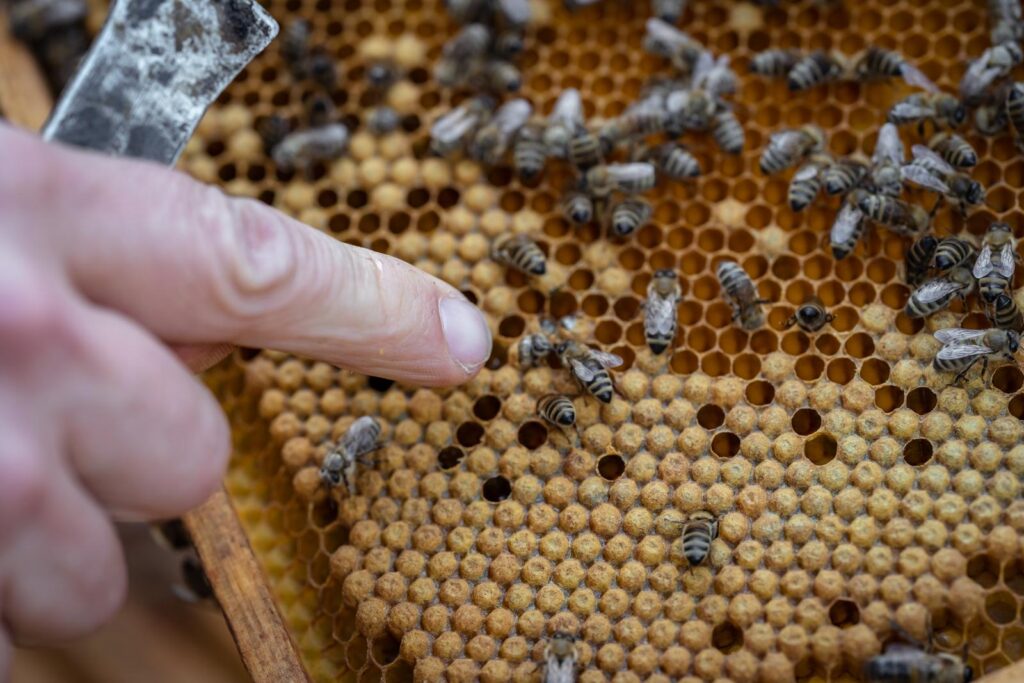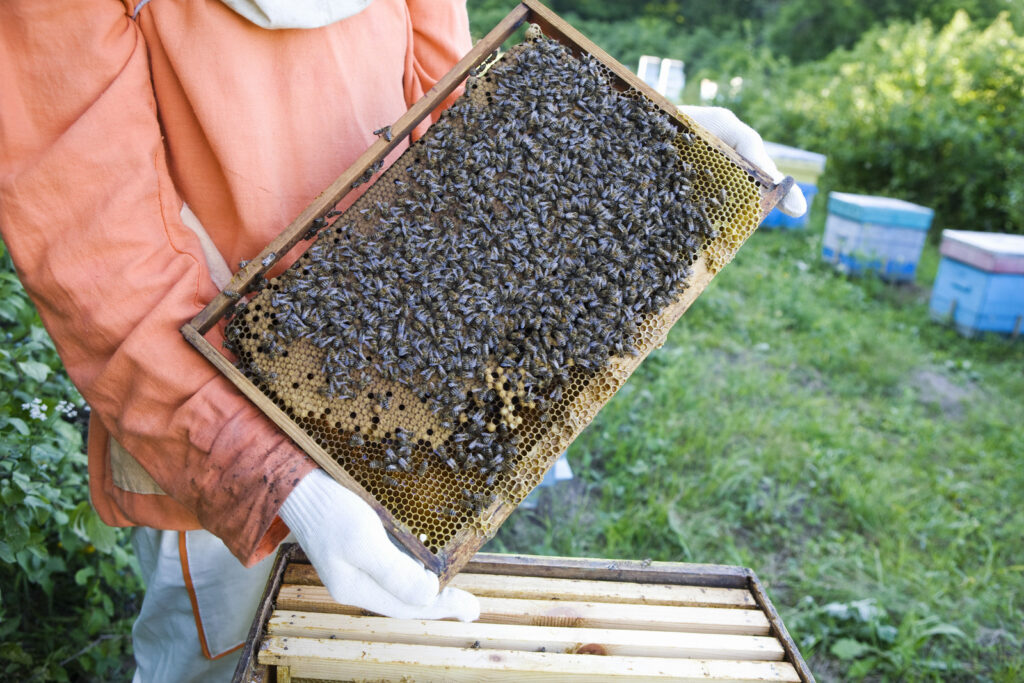While beekeeping is an extremely rewarding hobby, it can be even more rewarding (and profitable!) as a career!
But how much can you really expect to earn as a beekeeper? This is an excellent question. People do make money from beekeeping as a full-time career. But how much is determined by an array of things. Your environment, number of hives and whether you are working for someone else or yourself all play a part in how much income you can get from beekeeping.
In this article, we will examine what it means to be a “beekeeper”, how much profit you can earn, your likely salary per year working in an apiary and even the different types of products honey farmers can sell to make some serious coin! We hope you enjoy!
What Does a career in Beekeeping Look Like?
A beekeeper without their own bees and working in a large apiary can expect to do tasks such as feeding bees, making hive splits, checking on the queen bee and doing hive inspections. However, your main responsibility would likely be to keep the hive as healthy as possible because a healthy colony makes more honey than an ill one!
Your salary for doing this kind of beekeeping (in someone else’s apiary) will likely depend on factors such as skill level, your area, and the size of the apiary you work for. Resources quote the average salary of a beekeeper to be between $12 and $25 per hour (this can vary).
What Does a Beekeeper Earn Annually?
On average, at least in the United States of America, a beekeeper can expect to earn about $40,300 in salary annually. That’s about $3.358 per month. However, this salary can range from $28,000 and $44,000.
Further still, statistics show that a less experienced beekeeper will likely start at minimum wage, while a beekeeper with more experience can earn much more. For example, a beekeeper who has been employed for one season can earn about $37,000 annually, while a beekeeper employed for four to five years can earn about $40,000 to $55,000.
Moreover, a very good beekeeper can likely nab a manager position which can come with a salary boost to between $65,000 to $95,000 annually! However, this amount will not be consistent for everyone because there are many variables which determine the salary of those working in this industry.
Variables which can influence the annual income of a beekeeper includes in which country the hives are in, what the market conditions are, the beekeeper’s experience and many more.
To elaborate, someone working with hives in California would likely have a different income bracket than someone beekeeping in Alabama.
If you are thinking about becoming a beekeeping to earn a living, consider consulting your local governmental agricultural department for advice on earning amounts possible in your area.
Types of Income for Bee-Owning Beekeepers
Honey
The most obvious form of income for bee-owning beekeepers is honey (of course!). This is by far the most popular product a beekeeper can produce and which is always in demand for customers.
For these beekeepers, a good yield from a single hive can produce as much as 11-26litres of honey! (Honey is currently trading at $5.50-$6,50 per pound wholesale and $8.50 to $10.50 per pound retail!) There is good money to be made from selling this hot commodity.
Beeswax
The next best thing after honey, is beeswax. This has a range of uses and can be converted into balms, candles, soaps, and much more! These products are also highly in demand if you have a good quality and right coloured wax and can find the people to buy it! For reference, Betterbee sells 1 pound of beeswax for $10.95!
Bee Pollen
Bee pollen is considered a superfood and has become popular recently. It is sold to people to help them improve their health and to get better immunity. Heath stores and natural food stores would very likely happily partner up with you if you can provide them with pollen! Bee pollen can be sold for around $25 a pound!
Propolis
Propolis is a special type of “glue” that bees make in their hives from tree sap to help them seal gaps in the hive. This ‘glue’ has an alternative use as a health boosting, immunity boosting medicine that can also be used to treat sores. Furthermore, due to it being waxy it is also often used in chewing gum and in certain cosmetics and can therefore be sold to companies for this purpose.
You can expect to earn around $380 a kilogram for propolis! The amount of propolis you can collect from one hive differs, and some beekeepers reportedly harvest around 50-150 grams a season! Although using special collection procedures, you can expect to collect around 1kg per season per hive.
What are a Beekeepers’ Actual Profits?
In order to provide a definitive answer as to what a beekeeper’s profits could look like, we have to first consider costs!
Most beekeepers pay around $300 per hive, about $60 per package of bees and around $150 for nucs. You’ll also likely have to invest money in tools for hive maintenance (hive tools/uncapping knife) and honey extraction (an entry level extractor can cost as much as $300). Additionally, you’ll have to buy protective gear like a hat, a suit and a smoker. A beginner beekeeper can expect to pay as much as $5000 in the first year alone to maintain their hives.
While there are these high costs, you will more likely than not make more than your costs. A healthy profit of about $3000 (considering variables*) is probably what you can expect to make in your first year.
To Summarise…
Whether you are working as an employee at an apiary, or you are running your own beekeeping business, we can safely say that there is money to be made in beekeeping!
More experienced keepers can expect to earn much higher wages than those starting out, and while you will likely have to work years before you see a major pay increase, you will make a decent salary.
Beekeepers who sell their bee-goods can also expect to make healthy profits from their beekeeping ventures!


